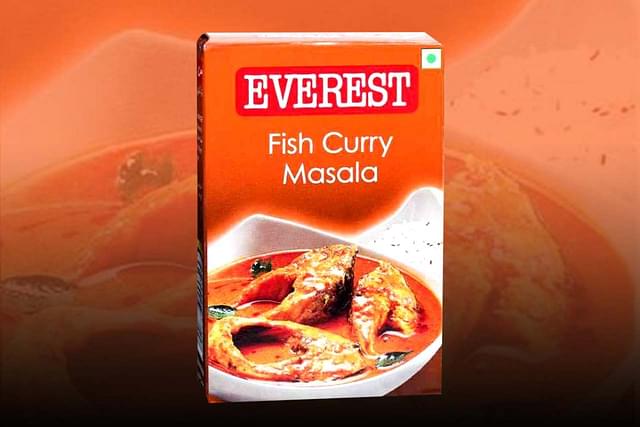News Brief
India's Food Safety Regulator Finds No Traces Of Ethylene Oxide In MDH And Everest Spices: Report

Everest Fish Curry Masala.
The Food Safety and Standards Authority of India (FSSAI) has reportedly not detected any trace of carcinogenic ethylene oxide in spice samples from major brands MDH and Everest tested in 28 accredited laboratories.
Results from six additional laboratories are still pending.
Last month, FSSAI initiated nationwide sampling of powdered spices from all brands, including MDH and Everest, in response to quality concerns raised by Hong Kong and Singapore.
Hong Kong's Center for Food Safety (CFS) had advised consumers against purchasing certain spice products from these brands due to the presence of carcinogenic ethylene oxide beyond permissible limits.
Ethylene Oxide, which is used as a fumigant in certain agricultural products, is considered unfit for human consumption and a cancer risk after long exposure.
The affected products include MDH's Madras Curry Powder, Everest Fish Curry Masala, MDH Sambhar Masala Mixed Masala Powder, and MDH Curry Powder Mixed Masala Powder.
A nationwide drive was launched on 22 April, involving state and Union Territory food safety commissioners and FSSAI regional directors.
This initiative included thorough inspections of spice manufacturing units, along with sampling and testing of products intended for domestic sale and consumption.
Samples from Everest were collected from two of its manufacturing facilities, while 25 samples from MDH were obtained from 11 of its facilities.
Each sample was analysed for various quality and safety parameters, including pesticide residues and ethylene oxide, at NABL-accredited laboratories notified by FSSAI.
The scientific panel at FSSAI examined the laboratory reports received so far and found no traces of ethylene oxide in the samples, news agency PTI reported citing sources.
Additionally, test reports of over 300 samples from other spice brands were reviewed and similarly showed no presence of ethylene oxide.
The scientific panel consists of experts from the Spice Board, CSMCRI (Gujarat), Indian Spice Research Institute (Kerala), NIFTEM (Haryana), BARC (Mumbai), CMPAP (Lucknow), DRDO (Assam), ICAR, and the National Research Centre on Grapes (Pune).
The Spice Board has also issued guidelines to spice exporters on using ethylene oxide as a fumigant for sterilising spices to deal with microbial contamination as per the standards of importing countries.
Support Swarajya's 50 Ground Reports Project & Sponsor A Story
Every general election Swarajya does a 50 ground reports project.
Aimed only at serious readers and those who appreciate the nuances of political undercurrents, the project provides a sense of India's electoral landscape. As you know, these reports are produced after considerable investment of travel, time and effort on the ground.
This time too we've kicked off the project in style and have covered over 30 constituencies already. If you're someone who appreciates such work and have enjoyed our coverage please consider sponsoring a ground report for just Rs 2999 to Rs 19,999 - it goes a long way in helping us produce more quality reportage.
You can also back this project by becoming a subscriber for as little as Rs 999 - so do click on this links and choose a plan that suits you and back us.
Click below to contribute.
Latest